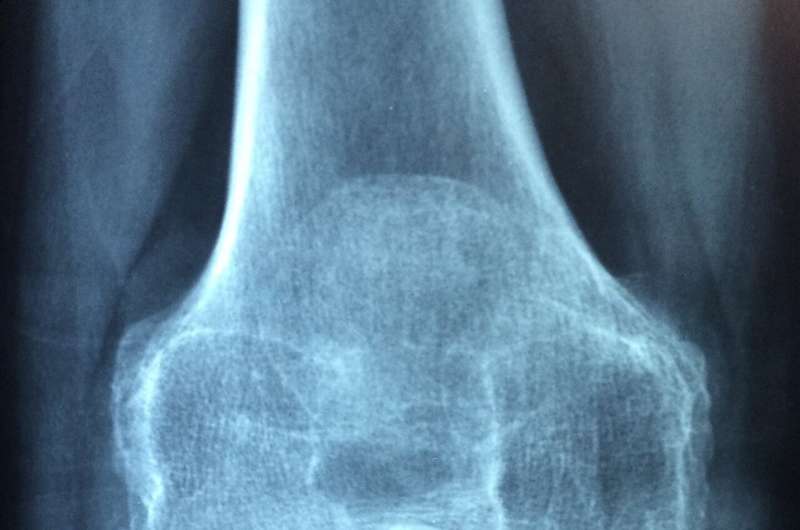Continuation vs. discontinuation of bDMARDs during the perioperative period

For patients with rheumatic arthritis and other chronic inflammatory diseases, discontinuing biologic disease-modifying anti-rheumatic drugs (bDMARDs) prior to orthopedic surgery does not appear to increase the risk of surgical site infections or delayed wound healing, concludes a review and meta-analysis in The Journal of Bone & Joint Surgery.
However, patients discontinuing bDMARDs may be more likely to experience a disease flare following orthopedic surgery, according to the report by Bernard H. van Duren of University of Leeds, UK, and colleagues.
Decisions regarding bDMARD discontinuation must balance the risk of disease flares
bDMARDs have represented a major advancement in the treatment of rheumatic arthritis and other inflammatory diseases. Although effective in slowing disease progression, these biologic agents have traditionally been associated with an increased risk of infection.
In the case of total joint replacement, infections are a potentially devastating complication; thus, some surgeons and other specialists recommend discontinuing bDMARD therapy during the perioperative period. "[H]owever," the researchers write, "there has been no definitive evidence showing a clear benefit of discontinuing the use of bDMARDs, and in doing so, patients may be at an increased risk for higher disease activity."
Toward clarifying the issue, Dr. van Duren and colleagues performed a systematic review of 11 studies that included 4,959 patients who discontinued their bDMARDs and 2,385 patients who continued their bDMARDs. The most common diagnosis among these patients was rheumatoid arthritis, and tumor necrosis factor inhibitors were the most common type of bDMARD. However, other diagnoses and bDMARDs were represented.
The meta-analysis found no significant difference in the rate of surgical site infections between patients who discontinued (3.06%) versus continued their bDMARDs (2.90%). The rates of delayed wound healing were also similar between those discontinuing (2.28%) and continuing their bDMARDs (0.99%). Subgroup analysis of patients undergoing total joint arthroplasty also showed no significant difference in the rate of surgical site infection.
However, patients who discontinued their bDMARDs were substantially more likely to experience a disease flare during the postoperative period: 25.71% compared with 7.32% among patients who continued their bDMARDs. The pooled analysis suggested a 78% reduction in the odds of having a flare for patients who continued bDMARD therapy.
Disease flares compromise patient rehabilitation following orthopedic surgery. In addition, patients who experience a flare often require treatment with corticosteroids, introducing an additional risk of infection. "It is therefore important to balance the risk of flares against the risk of infection if bDMARDs are continued during the perioperative period," Dr. van Duren and coauthors write.
The researchers note that their review is among the first "to comprehensively investigate the effect of continuing or discontinuing bDMARDs perioperatively across inflammatory diseases in patients undergoing orthopedic surgery." However, although the analysis included data on a large number of patients, the ability to draw conclusions is limited by the "generally low" quality of the available studies, as reflected by the inconsistency of current guidelines regarding perioperative bDMARD discontinuation. Dr. van Duren and colleagues emphasize the need for randomized controlled trials "to provide definitive answers in this important area."
More information: Bernard van Duren et al, The Effect of Perioperative Biologic Disease-Modifying Anti-Rheumatic Drugs on the Risk of Postoperative Complications, The Journal of Bone & Joint Surgery (2022). DOI: 10.2106/JBJS.21.00811
















